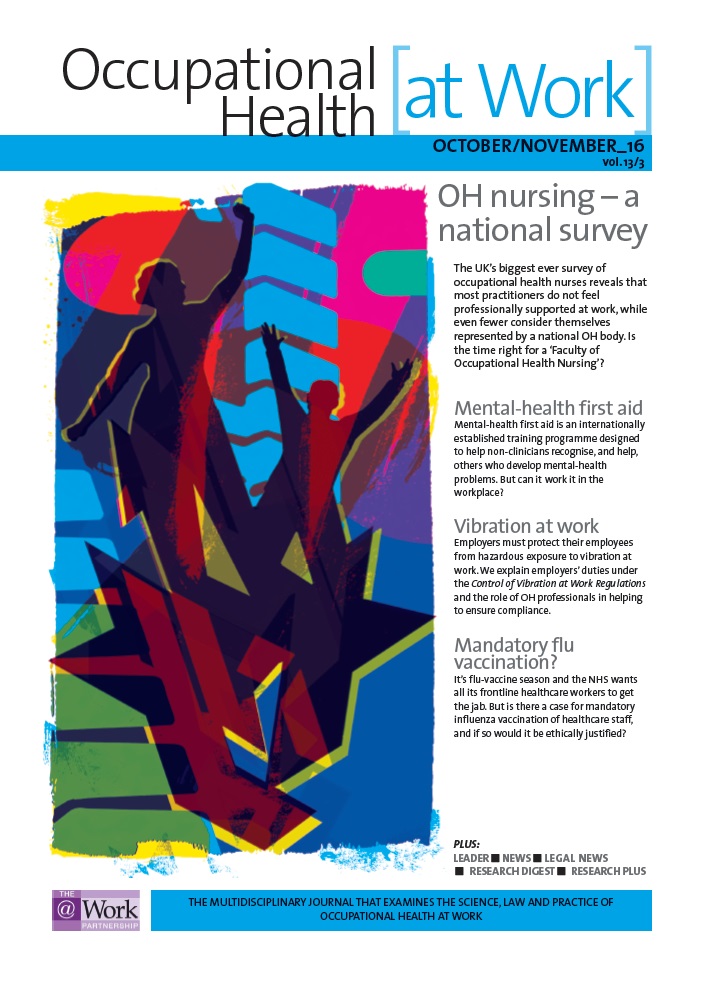October/November 2016 (vol. 13/3)
ContentsFeaturesNewsLegal
NewsResearch DigestResearch PlusCPD
Research Plus
Impact of mid-life physical limitations on later life
Individuals reporting physical limitations in mid life are more likely to retire for negative reasons – eg poor health, partner’s health, becoming a carer, bereavement, redundancy, unhappy at work or work problems – both before and after state pension age (SPA) and less likely to undertake bridge employment (paid work after retiring from main occupation), this British study reveals. A cohort of 5,262 people born during one week in 1947 was followed up at ages 26, 36, 43, 53, 60–64 and 68 years. Difficulties with various physical tasks (such as walking up and down stairs or removing a tight lid) owing to health problems were reported at age 53. Cognitive and physical performance capabilities were also assessed. After adjustment for confounders, those with three to four physical limitations at age 53 were 3.15 times as likely to retire at or before SPA for a negative reason (CI 1.07–9.26) and 3.98 times as likely to retire after SPA for a negative reason (CI 1.34–11.88) compared with those with no limitations. Individuals with high scores for physical or cognitive performance at the age of 53 were more likely than those with low scores to participate in bridge or voluntary work later in life.
Scandinavian Journal of Work, Environment and Health 2016; online first: doi: 10.5271/sjweh.3589
Occupational Health at Work October/November 2016 (vol. 13/3) pp41



